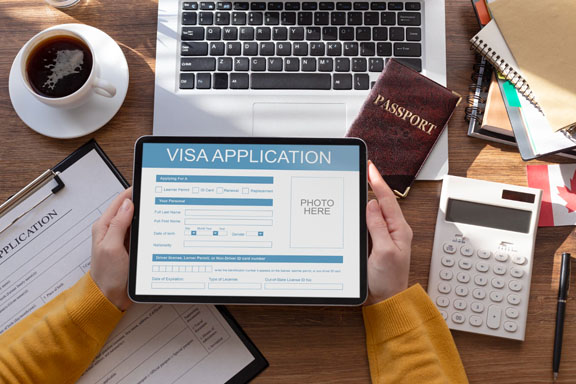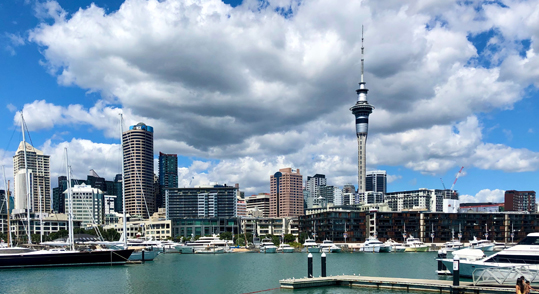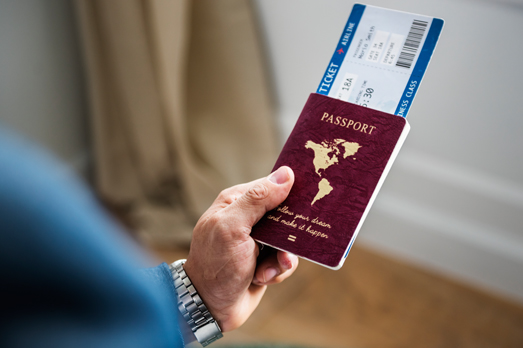Review and Appeals

Visa Refusal
If you have recently been refused an Australian visa, and disagree with the decision, there are some steps you can take. The information below may help you to generally better understand your options.
- Merits Review Overview
- Notification of Decisions
- The Administrative Appeals Tribunal (AAT)
- Reform of the Merits Review System
What is the AAT?
Time Limits for the AAT
The date considered notified depends on how you received the document.
- If you received the refusal Notification by email, it is on the day you received the email.
- If you received the Notification by registered post, it is 7 working days from the date of the letter
- If you are in immigration detention –the time limit is 7 working days.
What is the AAT?
Time Limits for the AAT
The date considered notified depends on how you received the document.
- If you received the refusal Notification by email, it is on the day you received the email.
- If you received the Notification by registered post, it is 7 working days from the date of the letter
- If you are in immigration detention –the time limit is 7 working days.
Visa Cancellation
You will not pass the character test if you
- Have a “substantial criminal record” (see below for definition); or
- Have an association with an individual, group or organisation which is suspected of being involved in criminal conduct; or
- Are not of good character having regard to your past and present criminal or general conduct; or
- Are at significant risk of engaging in future, unacceptable conduct.
What happens if my visa is cancelled
- If your visa is cancelled you cannot remain in Australia unless you get another type of visa.
- You cannot apply for any other visa except a protection (refugee) visa or a bridging visa.
- Once you have finished your prison sentence, you will be removed from Australia and returned to the country of which you are a citizen. Most of the time this is the place you were born.
- After you have been removed from Australia you will never be able to return.
What happens if my visa is cancelled
- If your visa is cancelled you cannot remain in Australia unless you get another type of visa.
- You cannot apply for any other visa except a protection (refugee) visa or a bridging visa.
- Once you have finished your prison sentence, you will be removed from Australia and returned to the country of which you are a citizen. Most of the time this is the place you were born.
- After you have been removed from Australia you will never be able to return.
Public Interset Criterion 4020
PIC 4020 enables refusal of a visa if an applicant provides a bogus document or information that is false or misleading in relation to their application, or if the Minister is not satisfied with an applicant’s identity.
If PIC 4020 is part of the criteria for the particular visa you have applied for you must satisfy PIC 4020 in order to be granted your visa.
Re-entry Ban Exclusion Peroid
A re-entry ban, also known as an exclusion period, means a person may not be permitted to return to Australia for up to three years. A re-entry ban may be imposed when a person breaches their visa conditions.
- you overstay your visa by more than 28 days
- your visa is cancelled because:
- you provided false documents or false information to the Department of Home Affairs
- you are considered to be a risk to the health, safety or good order of the Australian community
- you are convicted of an offence against a law of the Commonwealth, or a law of an Australian state or territory
- you are found to have breached a visa condition, for example, you worked when your visa had a no work condition
- you hold a student visa but have failed to maintain appropriate enrolment, breached another visa condition, or have been found not to be a genuine student
- you hold a visitor visa but were found not to be in Australia as a genuine visitor.
Does the re-entry ban apply to all visas?
No Further Stay (8503) waiver
If one of these conditions has been imposed on your visa, you cannot apply for another visa (except a protection visa or a temporary visa of a specified kind, while you are in Australia).
When you depart Australia a ‘No Further Stay’ condition will not prevent you from applying for other visas.
Schedule 3 Criteria Waiver
Schedule 3 criteria permits unlawful non-citizens to apply for a visa in Australia on compassionate or compelling grounds, instead of being required to depart Australia and apply offshore.
The purpose of the Schedule 3 criteria is to:
- Encourage non-citizens who have a legitimate basis for remaining in Australia to apply for a further visa before their current substantive visa ceases
- Discourage non-citizens from remaining in Australia beyond the period of effect of their substantive visa and
- Prevent non-citizens from benefiting by remaining in Australia unlawfully, by possibly acquiring visa eligibility while remaining here without lawful permission
Ministerial Intervention
The Minister has powers under the Migration Act 1958 to intervene in your case when the Minister thinks it is in the public interest to do so.
What is and what is not in the public interest is for the Minister to decide. The Minister is not legally bound to intervene or to consider intervening.
When the Minister intervenes to make a more favourable decision, this usually means that the Minister grants a visa. However, only a small number of all requests for ministerial intervention are successful.
Options that might apply to you:
- You have received a decision by a review tribunal
- You have previously been refused a protection visa or your protection visa has been cancelled
According to the Australian Government Department of Home Affairs, Ministerial Intervention is not an extension of the visa application or review process, it is a “safety net” mechanism that allows the Minister to intervene in certain visa cases where the decision may result in “unfair or unreasonable” outcomes. This power is discretionary and is only used in unique or exceptional circumstances.
Notice Of Intention ToConsider Cancellation (NOICC)
A Notice of Intention to Consider Cancellation will include:
- Details of the nature of alleged activities.
- Evidence(s) or information held by the Department.
- An invitation to comment and present arguments and evidence to support your case.
- The time limit and method of response.
- Your response to the NOICC is your opportunity to tell the Department the reasons why your visa should not be cancelled and why you should be allowed to stay in Australia.
- The Department uses Ministerial Direction No.65 when assessing your response to the Notice of Intention to Consider Cancellation.
- You should aim to provide enough convincing arguments in your response to a NOICC.
Judicial Review
The Court may only review a decision in order to determine if a ‘jurisdictional error’ has been made. This means the Court determines if the decision has been made according to law. The Court is independent of the decision-makers. The Court does not consider the merits of your application and whether you should or should not be granted a visa.
If the Court finds a jurisdictional error, it can:
- Refer your case back to the decision maker, and.
- Prevent the Minister from acting on the decision.
The Court cannot:
- Reconsider the facts and reasons for your visa application
- Take new factual information into account (unless it is relevant to a question of whether the decision maker made a jurisdictional error), or
Grant you a visa.
What is Health Waiver
The Australian Migration Act (1958) and Regulations (1994) stipulate that most visa applicants need to meet Public Interest Criteria (PIC). The health-related PICs (4005-4007) stipulate the health requirement that must be met before the grant of a visa.
To meet the health requirement to be granted a visa, a visa applicant’s immigration medical examination results must be assessed and they must be granted a health clearance. If the health clearance is a “Does Not Meet”, the applicant has not met the health requirement and a visa cannot be granted unless a health waiver is available and exercised.
Where PIC 4005 applies, if an applicant (or a non-migrating family member) fails to meet the health requirement for a visa, there is no provision for a health waiver to be considered.
A health waiver can only be exercised for visa applicants (and any non-migrating family members) for certain visas to which PIC 4007 applies. This includes:
- All Refugee and Humanitarian visas
- Certain skilled, business and other non-humanitarian migration visas
- The 500(Foreign Affairs or Defence Sector) student visa
- The Temporary Skill Shortage (subclass 482) visa
Section 57
Section 57 of the Act is the ‘adverse information’ provision and amounts to a codification of the principle expressed and s 57 requires the Department to disclose to the applicant any and all information that it holds that could be a reason to refuse the application and allow the applicant to comment on it.
- In this section, relevant information means information (other than non-disclosable information) that the Minister considers:
- Would be the reason, or a part of the reason, for refusing to grant a visa; and
- Is specifically about the applicant or another person and is not just about a class of persons of which the applicant or other person is a member; and
- Was not given by the applicant for the purpose of the application.
- That is, the information must be adverse, be specific to the applicant in some way, and not information provided by the applicant themselves
Section 48 Bar
Becoming unlawful in Australia or overstaying your visa can negatively affect future visa applications and eligibility for citizenship.
From 13 November 2021, the S48 Bar waiver is available for skilled visa applicants for subclasses: SC 190, SC 491 and SC 494. This means that Section 48 bar applicants can apply for SC 190, SC 491 and SC 494 visas Onshore from the above date.
For more information regarding the Review or Appel of your matter book your appointment today with one of our experts.














